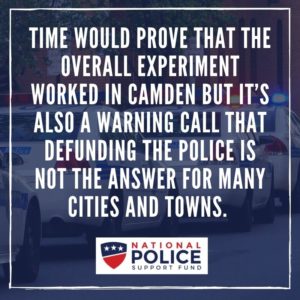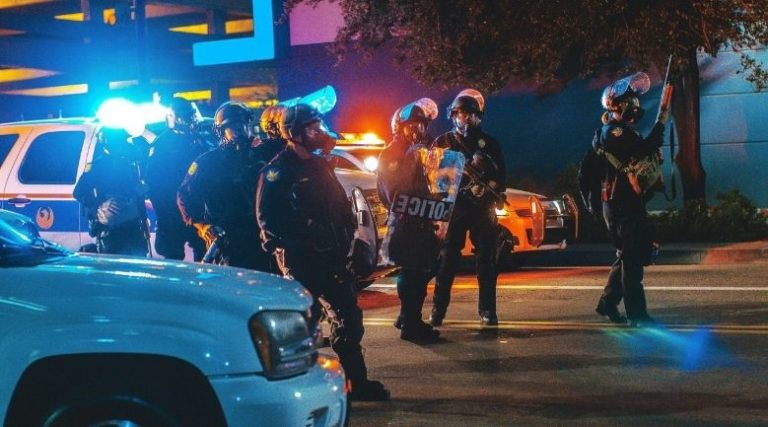Back in 2013, before Black Lives Matter fueled an anti-police movement across the country, the city of Camden, New Jersey, opted to defund the police and start from scratch. There are many lessons to be learned from this case study, including how police reform can work, but defunding alone is not a solution.
Located across the Delaware River from Philadelphia in southern New Jersey, Camden is a city of about 75,000 people that’s suffered a decline into violence as manufacturing jobs left the region. In 2012, the year before the police department was defunded, the city was named the most dangerous in America with 67 homicides and 172 shooting victims, according to the Philadelphia Inquirer.
The City That Defunded Police
With violent crime on the rise, what did the city’s elected officials decide to do? Scrap the entire police force and start over again. Time would prove that the overall experiment worked in Camden, but it’s also a warning call that defunding the police is not the answer for many cities and towns.
Camden’s success came largely from a concerted effort to change the relationship police had with community members. Scott Thomson, who was appointed police chief to oversee the rebuilding process, told officers that they should think of themselves as members of the Peace Corps rather than the Special Forces.
As a result, officers started to hold cookouts, neighborhood meetings, and other events to improve police/community relations. Crime started to drop as a result, Thomson told NBC News.

Under Chief Thomson, what they said is: ‘Look, we’re trying to police a poor community here where tickets can have a life-changing impact on people’s very being, and so we want to be really circumspect about when we’re issuing them,'” Alex Shalom, a senior attorney at the ACLU of New Jersey, told NBC News. “That was a remarkable change in policy, and an important one.”
The driving factor at play in Camden was the fact that police never lost respect in the community. Rather, the city sought to bring police and community members closer together. This was a time before anti-police activists and politicians came to power and made reforming the police into an effort that’s all about tearing police down and stripping them of the respect they deserve.
Why Defunding the Police Is Not the Answer
In Minneapolis, where the death of George Floyd sparked Black Lives Matter protests last summer, things got so bad that the city council had to authorize $500,000 in funding to deal with a crime spree that followed the city’s original vote to defund the police.
“I have 74 people who are no longer alive in this city because they’ve been killed,” Police Chief Medaria Arradondo told Fox 9 News. “I’ve got almost 500 people who’ve been shot and wounded in this city. We can talk about re-imagining policing. I’m talking about what is necessary today, in this city, and we need extra resources.”
New York City also saw an increase in violent crime following the city’s decision to remove $1 billion from its police budget. The cuts meant that an officer training event last July had to be canceled at a time when staffing needs were greater than ever due to COVID-19.
New York Police Benevolent Association President Pat Lynch blasted the city’s decision and told ABC7 News how much damage it did in a short amount of time.
“Shootings more than doubled again last week,” Lynch said “Even right now, the NYPD doesn’t have enough manpower to shift cops to one neighborhood without making another neighborhood less safe. We will say it again: the Mayor and the City Council have surrendered the city to lawlessness. Things won’t improve until New Yorkers hold them responsible.”
While Camden proved that changing police operations is sometimes necessary, examples from Minneapolis, New York, and countless others show that defunding the police is not the answer and that respect for police must be a key component of any potential reforms.
Image Credit: Photo by Aj Colores on Unsplash
More than six months after Black Lives Matter protests broke out across the United States, several cities and towns have started the process of yielding to activist demands and defunding their police departments. Let’s take a look at where these places are and what happens when cities defund police departments.








